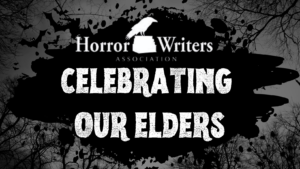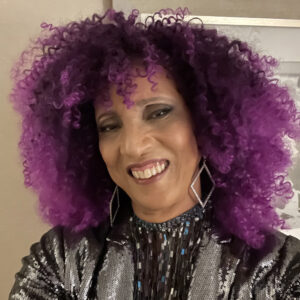Celebrating Our Elders: An Introduction by Linda D. Addison

Linda D. Addison, award-winning author of five collections, including How To Recognize A Demon Has Become Your Friend, the first African-American recipient of the HWA Bram Stoker Award®, received the HWA Mentor of the Year Award, the HWA Lifetime Achievement Award and SFPA Grand Master of Fantastic Poetry. Her site: www.LindaAddisonWriter.com.
Introduction: HWA Celebrating Our Elders interview series by Linda D. Addison
The word wisdom is often used when talking about Elders, but what does that mean? Of all the meanings for this word, common sense is one that stood out to me. When we say someone has good common sense, it means they have practical approaches to decisions and issues that make us stumble in everyday life. Approaches that help get through challenges that could make having hope, and believing in ourselves feel impossible. For writers this means knowing that rejections will not kill, day jobs don’t have to stop our dreams, writer’s block is a ghost that dissipates in time, and much more.
Being an artist means being committed to working in a world that doesn’t always support or honor our creations. What does it take to continue writing, when obstacles loom in the way, when others tell us our work isn’t good enough? Take time to read the interviews coming your way this month, maybe even read them more than once. Each writer is known, and their work is known, but the journey from their early dream of writing to today isn’t obvious. There isn’t only one way to publication, there are many and only you will know if what’s shared can help your journey evolve or affirm what you have learned by your own experiences.
For me, my early years of writing were like keeping a secret, writing on bits and pieces of paper. I didn’t talk about my dreams of wanting to see my work in print. Along the way published authors that I admired showed me by example or direct conversation that my dreams were possible. What followed were years of writing, submitting, getting rejections, studying how to write better, and the slow breakthrough that happened when I kept pushing forward.
Here, many years later, I am still picking up new information, but I’m also happy to share some of what I’ve learned:
- It’s important to make time to write, and to set a schedule, even if only 15 minutes a day.
- Writing the first draft from the beginning, middle to end is the first step, then comes editing versions until it’s as good as you can get it; you can’t publish what you don’t finish.
- Then find someone/group to give you feedback, because it’s hard to see where changes need to be done in your own work.
- When feedback comes, let go of any that doesn’t work for your vision of the work. It is your creation
- Record every idea that comes (journaling), they are the seeds of future work.
- Writer’s block is a way for the muse/imagination to say: this isn’t ready right now, so go do something else (reading, writing something else, laundry, etc.) and come back later (this can be hours or years later).
- Have at least three markets to submit your work to, and do the research to make sure they are open to what you write.
- Submit to your biggest dream market, why not?
- No one enjoys having work rejected, but don’t let that fear stop you from submitting your work, and don’t self-reject.
- If your submitted work is rejected, send it back out (unless you can quickly see how to make it better) because you want to keep creating new work so don’t chew endlessly on work done.
- You are allowed to love your work.
- There is always something to learn, keep expanding your writing!
- Read inside and outside of your chosen area.
As you read the following interviews take note of what practical points are being passed on. We, humans, evolve by sharing information and knowledge learned from the past. Pay attention to your own personal writing evolution, so that one day you can offer what you know to someone with less experience.
The poet Sylvia Plath met Luke Myers at Cambridge, where she and Myers were studying. In her journal entry for February 25, 1956, she wrote: “I have learned something from E. Lucas Meyers (sic) although he does not know me and will never know I’ve learned it. His poetry is great, big, moving through technique and discipline to master it and bend it supple to his will. There is a brilliant joy, there, too, almost of an athlete, running, using all the divine flexions of his muscles in the act. Luke writes alone, much. He is serious about it; he does not talk much about it. This is the way.” – Sylvia Plath, The Journals (London: Faber & Faber, 2000), p. 207.
You have the words of many here to find inspiration: This is another Way…




